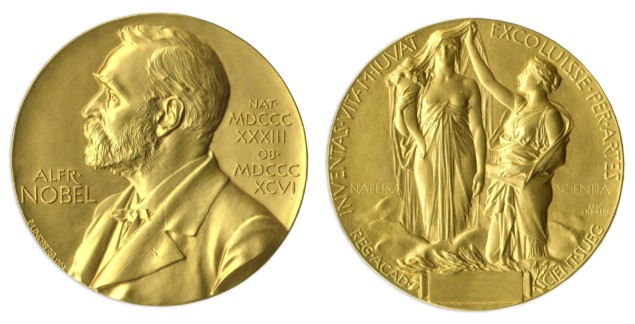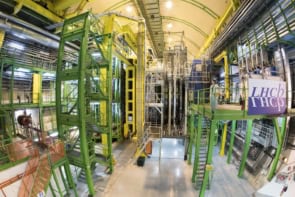
Research into particle and atomic physics is more likely to be awarded a Nobel prize than work in other fields. That is according to new analysis from scientists at Stanford University, who find, however, that research that does achieve such recognition may actually have far less impact than other discoveries made at the same time.
John Ioannidis and colleagues from Stanford mapped the key Nobel-prize-related publication of each laureate who was awarded a prize in either physics, chemistry or physiology and medicine between 1995 and 2017. They also analysed 63 million other articles from the Scopus database that were published in the same timeframe. The work revealed that, out of 114 scientific fields, particle and atomic physics alone account for a quarter of Nobel prizes awarded during the period covered by the study. When including cell biology, neuroscience and molecular chemistry, these five fields accounted for more than half of the awards. Furthermore, almost all Nobel-prize-related papers have been cited less extensively than top papers published around the same time.
Many candidates deserve a prize, but only a few receive it
Lutz Bornmann
While the Stanford group was unable to determine whether this clustering is driven by the nomination of candidates or by the selection of the awardees, or both, they are concerned that it might create a culture where some scientists are considered less worthy simply because of the field in which they work. It might even influence the fields in which researchers choose to undertake research. “Scientists do care about rewards and incentives. Therefore, they may be attracted to work in fields or subdisciplines that are attracting more recognition, funding and have better odds of being seen as important science,” Ioannidis told Physics World. “Diversity and richness of disciplines and approaches is a strength of science, and too much clustering of recognition may be detrimental in this regard.”
Ground-breaking research
Lutz Bornmann, a science sociologist at the headquarters of the Max Planck Society in Munich, Germany, is “surprised” by the team’s findings. “I had expected that the Nobel prizes would be evenly distributed across fields,” he says. He wonders whether, in addition to the potential for bias in the nomination and selection processes, the clustering might indicate that certain fields of science are more amenable to the type of ground-breaking research likely to achieve Nobel recognition.
James Peebles, Michel Mayor and Didier Queloz share Nobel Prize for Physics
Bornmann is keen, however, for scientists to continue their research efforts in whichever field captures their interest. “Although the study revealed these clustering processes, researchers should not adjust their careers to the results of the study,” he says. After all, he explains, even researchers active in fields seemingly favoured by the prize stand only a very small chance of being awarded a Nobel, however worthy their achievements. “Many candidates deserve a prize,” he says, “but only a few receive it.”
The research is published in PLOS One.




